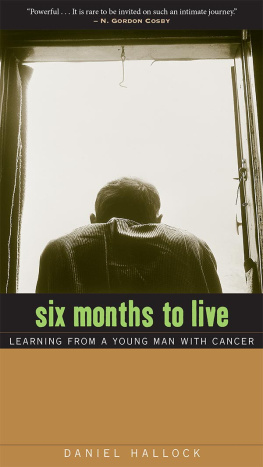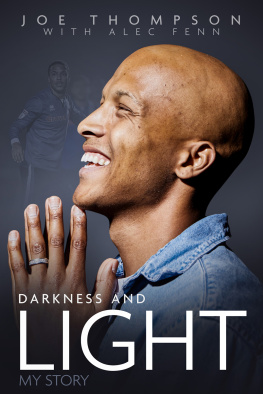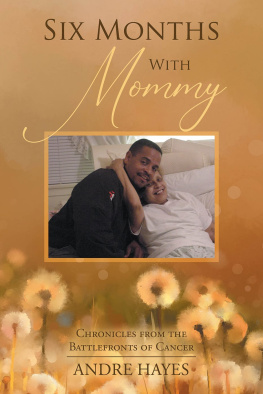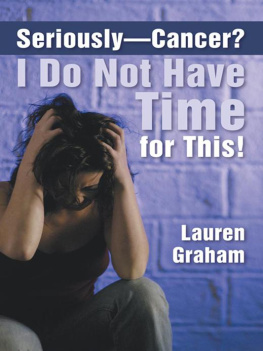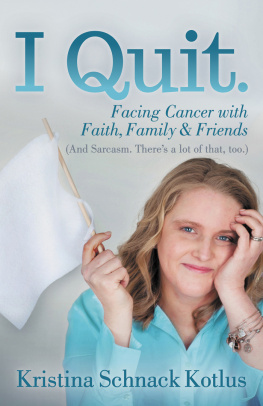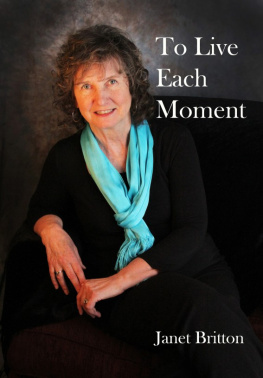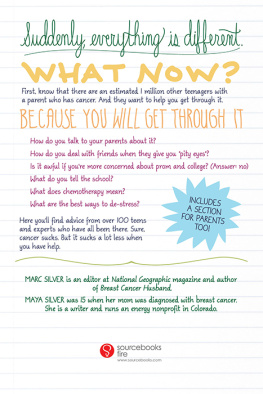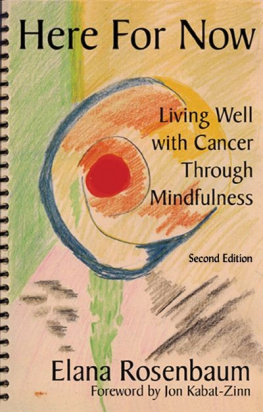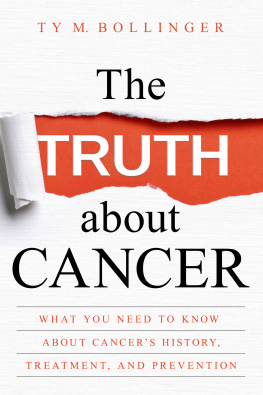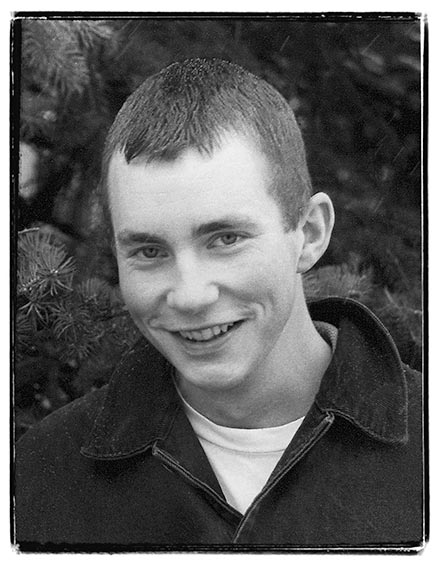He was no sage or angel but a person who,
under the stress of terrible agony,
learned to accept being weak without being ashamed.
Hermann Hesse,
Peter Camenzind
Preface
As we rose from our chairs at the end of the service, which was held outdoors, six men including Matts dad, Randy, and his brother, Nick picked up his wooden casket. Several friends had made it by hand and painted it white.
After the pallbearers came a long, silent train: eight hundred friends, family members, relatives, classmates, and fellow church members, winding past Matts old school, past the basketball court where hed played, and the playing field, and up the valley.
We came out of the woods and into the burial ground, and the crowd filled the sunlit lawn. Matts casket was lowered. A dozen peers stepped forward, shovels in hand. Tears blinded a few as they threw earth into the grave, and now and then someone missed completely.
Now Cynthia a widow at twenty-one placed a bouquet of long-stemmed roses at the head of the grave, a look of triumph playing across her face. As she straightened, two little girls ran forward to add their flowers. Suddenly the crowd surged forward from all sides, and in minutes the grave was a mound of bright bouquets.
Roses had been brought for onlookers who didnt have their own flowers, and two still stood in a pitcher on the ground. Dave, a close friend who had mentored Matt during his high school years, took one and placed it on the heap. Howard, another friend, took the remaining one and did the same, before breaking into sobs. Cynthia tried to comfort him.
Across the circle, someone began We Shall Overcome. Eight hundred voices joined in, catching with emotion. As a young woman put it later, I will never forget how that song rang out. It was a language we could all understand. It was the holiest moment I have ever experienced.
Everyone was breaking down, another remembered. But it wasnt because we were sad. We werent crying over Matts death. We were crying for joy and awe.
Standing there in the enormous, largely youthful crowd, I had noted the same thing: unlike so many other funerals, this one was neither unbearably heavy nor depressing. Part of it was the setting: Matt comes from the Bruderhof, the Christian community I joined eleven years ago. In community, grief like everything else, from work, worship, and meals, to care of children and the elderly is shared.
Like Matt and his family, who came to the Bruderhof two years before me, I grew up in a typical middle-class home, where the subject of death like illness, grief, heartache, or other sources of anxiety was assiduously avoided. Its not that a conscious taboo existed. But negative life experiences were rarely, if ever, discussed outside the family. We simply didnt go there, conversation-wise.
As a working adult, I found the same silence, the same walls carefully constructed around each personal life. When the wife of an engineer at my firm a kindly man I regarded as a mentor came down with cancer, he brushed off every expression of sympathy. It seemed as though he was obeying some unspoken code whereby vulnerability is seen as instability, and pain as weakness. Obviously he couldnt afford to be associated with either. He had to remain strong.
I know Ed loved his wife dearly, but to this day I am amazed at the lengths he went to detach himself from her suffering, at least on the job. One day he told me rather matter-of-factly that his wifes tumor had burst; a few days later he walked into the office and announced that his wife had died that morning. I was incredulous that he had come to work though its possible there was no one at home for him to talk to. On the other hand, the way he dealt with losing his spouse was hardly out of sync with the way everything was dealt with in our workaday world. There was never any lack of camaraderie, but it was only a faade. When the chips were down, you kept a lid on things no matter how much you were hurting.
The anguish of Matts loss, on the other hand, was carried not only by his widow, his parents, and hers, but by an entire church community that surrounded and upheld them. Moreover, it was accepted and embraced and plumbed for meaning in a way I cant imagine happening anywhere else. As Matts grandmother, Janet, wrote afterward, the funeral and the days preceding it meant more to her than all the church services I have ever attended. What should have been a horrendous experience was turned into a celebration of life, and of thanks to God for what he did in Matts life.
Perhaps that was the biggest difference between this funeral, which one of Matts friends unhesitatingly pronounced incredible, wonderful, and the ones I had avoided in my younger days. There were at least three. Two high school friends were killed in highway crashes one of them a guy Id been hanging out with just a few nights before. Wed talked late into the night about our plans for the future, and the next thing I knew, he was dead. He had driven home drunk from a nightclub at two in the morning and ended up wrapped around a tree. Another friend died of stomach cancer. He spent the last months of his life in his house, ashamed of his illness, and too insecure to go out. In short, I have (like everyone else I know) my own litany of the dead: friends or family members who died suddenly, or without hope or comfort each one an unwelcome reminder of mortality and a threat to dreams of a long, prosperous life, or at least a happy and fulfilled one.
As a teen (and later, as a twenty-something) I had my ways of trying to shrug such reminders off, of keeping them at an arms length and moving on. Mostly I made light of it. Live fast, die young, and leave a beautiful corpse was my motto though of course I reserved it for those unfortunate blips in time when death happened to someone else.
It almost happened to me. I was walking home with a group of fellow undergrads from a rock concert on campus. Wed taken a familiar short-cut. But we were stoned and only vaguely aware of just how close it ran along the edge of a deep gorge.
Friends tell me that I was there one second and gone the next. I myself remember nothing at all, except that when I woke up I was lying on my back looking up at a sky full of stars. I cried out, twice, and the second time I was answered by a friend some twenty feet above me. Reassured that I was still alive, he raced off to get help and came back with an acquaintance who was a climber. Together they lowered a rope and hauled me back up to the path.
My friends were ecstatic. Someone lit a joint, and we took stock of what had happened. Id stumbled off the cliff and fallen onto a ledge about three feet wide the only one of its kind along a mile-long stretch of the gorge. Had I fallen anywhere else, I would never have survived. As it was, I had landed flat on my back, on moss, and I didnt have a single scratch or bruise.
Back at the dorms, we partied up a storm. Yet as we laughed I caught a classmate staring at me as if I was some ghost returned from the dead. I suppose I felt like one. I had cheated death, but only by inches.
Looking back I see now that by mocking the incident, instead of letting it shatter me, I avoided its impact and missed a rare opportunity to examine my life its meaning, its direction, its purpose, its demands.
But this book is not about me. Its about Matt, whom death snatched at twenty-two though he still cheated it, as youll see and about the lessons his last six months on earth could have for you, if you are open to them.
No matter how, where, and when we live, each of us will one day have to pass through the doorway of death and through suffering as well. Through Matts illness and death, those of us who knew him felt as if we were allowed a glimpse through that door and given insights from across the border insights that may yet determine the course of our lives, even if we cannot articulate them. It is as if that door, long shut, has suddenly been opened, and we are no longer afraid to enter the rooms beyond it. Perhaps this book can open the same door for you.

